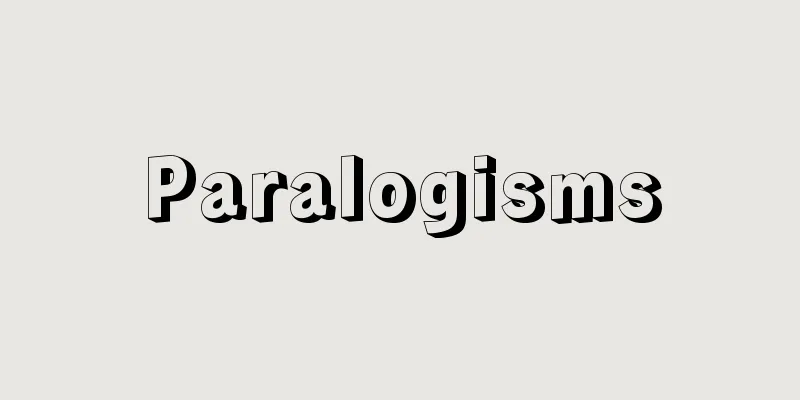Mana (English spelling)

|
A word originating in Oceania, it is said to represent a surreal and mysterious power, but in recent times it has become clear that it has various meanings depending on the region and context. In other words, mana is said to mean supernatural power, influence, magical power, mental power, impersonal power, divine (holy) power, efficacy, miracle, authority, prestige, etc. [Hiroki Sasaki] AttributesMana is a supernatural power that acts on everything in every way, beyond the normal power of humans. It is impersonal in itself, but is always connected to the person who exercises it, and it is said that the greatest benefit can be obtained by possessing and controlling it. Mana is not inherent to a specific person or thing, but has the transference that can be added or removed, and the infectiousness that can be transmitted spontaneously from one thing to another. [Hiroki Sasaki] ExamplesIn Melanesia, mana is associated with the individual: if a warrior wins a battle, it is not because of his strength but because he has mana; pigs are fertile and crops thrive, not because their owner is hardworking or careful with his property, but because he has stones filled with mana that have an effect on pigs and potatoes. In contrast, in Polynesia, mana is often understood in relation to hierarchy and groups. Royalty and nobility are said to be descendants of gods, and possess overwhelmingly more mana than the general public. Men possess more mana than women. Sometimes rulers have such strong mana that they are unable to move as they wish. This is because they fear that if they come into contact with lower-class people who possess a small amount of mana, the powerful mana will be activated, putting them in danger. In this way, mana is strongly linked to taboos. [Hiroki Sasaki] theoryThe idea of mana was first introduced to the academic world by R.H. Codrington, who described it as a supernatural power or influence that can be transferred or contagious. The idea of mana has been much debated, as it has been considered a question related to the nature and origin of religion. R.R. Mallet considered it to be a magical or spiritual power, while E. Durkheim considered it to be an impersonal power and identified it with the totem principle. H. Hubert, Marcel Mauss and others considered mana to be the basis of magical beliefs, rituals and practices. A.M. Hocart said that in Polynesia, mana was a term indicating the attributes of a community leader, and meant prosperity and success. A. Chiappel, from his research into the etymology of mana, concluded that its original meaning was "potency," and that the word was used when effectiveness beyond everyday use was recognized. He also concluded that concepts completely similar to mana can be found in the American Indian wakan and orenda. E. Norbeck states that the Japanese concept of kami (gods), who possess various people, things, and natural objects and exert their powers, is very similar to mana. [Hiroki Sasaki] [References] |Source: Shogakukan Encyclopedia Nipponica About Encyclopedia Nipponica Information | Legend |
|
オセアニアに起源をもつ語で、超現実的で不可思議な力の観念とされるが、最近では地域や脈絡によってさまざまな意味を示すことが明らかになってきた。すなわち、マナは、超自然力、影響力、呪力(じゅりょく)、心力、非人格力、神(聖)力、効力、奇蹟(きせき)、権威、威信などの意味をもつとされる。 [佐々木宏幹] 特質マナは人間のもつ通常の力を超えて、あらゆる方法であらゆるものに作用する超自然力で、それ自体としては非人格的であるが、つねにそれを行使する人間と結び付いており、それを所有し支配すると、最大の利益を得ることができるとされる。マナは本来特定の人物や事物に固有のものではなく、付け加えたり取り除いたりできる転移性、および自発的にあるものから他のものに伝わる伝染性を有する。 [佐々木宏幹] 事例メラネシアでは、マナは個人に結び付けてとらえられる。ある戦士が戦いに勝ったのは、彼の実力によるのではなく、彼がマナを得ていたからとされる。また豚が多くの子を生み、農作物のできがよいのは、その所有主が勤勉であるとか、財産管理に留意したためではなく、彼が豚や芋に効力のあるマナの充満した石を所有しているからとされる。 これに対しポリネシアでは、マナは階層や集団に関係づけて把握されることが多い。王族や貴族は神々の子孫とされ、一般民衆よりも圧倒的に多量のマナを身につけている。男性は女性よりも多くのマナを有している。ときに支配者は強力なマナをもっているため、思うように身体を動かせない。少量のマナを所有する下層民に触れると、強力なマナの発動で彼らを危険に陥れることを恐れたからである。このようにマナはタブーと強く結び付いているのである。 [佐々木宏幹] 学説マナの観念を初めて学界に発表したのはR・H・コドリントンであり、彼はマナを転移・感染可能な超自然力・影響力であるとした。マナの観念は宗教の本質や始源にかかわる問題とされ、多くの論議をよんだ。R・R・マレットはこれを呪力・心力とし、É・デュルケームは非人格的な力とし、トーテム原理と同一視した。H・ユベール、マルセル・モースらはマナをもって呪術的信念と儀礼・慣行の基礎とみなした。A・M・ホカートは、マナがポリネシアでは共同体の指導者の属性を示す語で、繁栄と成功を意味するとした。 A・キアペルはマナの語源研究から、その原初的な意味は「効力」であり、日常性を超えた有効性が認められるとき、この語が使用されるとした。彼はまたマナとまったく類似の観念がアメリカ・インディアンのワカンwakanやオレンダorendaにみられるとした。E・ノーベックは、さまざまな人物、事物、自然物に憑依(ひょうい)して威力を発揮させる日本のカミ(神)の観念はマナに酷似すると述べている。 [佐々木宏幹] [参照項目] |出典 小学館 日本大百科全書(ニッポニカ)日本大百科全書(ニッポニカ)について 情報 | 凡例 |
>>: Madonna (English spelling)
Recommend
Elementary particle model - Soryuushimokei (English spelling) elementary particle model
As more and more so-called elementary particles ar...
Miyanojo [town] - Miyanojo
This old town occupies the southern slope of the I...
Zaki al-Arsuzi (English spelling)
…Its roots lie in the Syrian Arab nationalist mov...
Kusayoshi - Kusayoshi
It is a perennial grass of the grass family that g...
final common path way
… [Peripheral motor paralysis] The final effector...
Erosional terrace (English spelling) Erosional terrace
… Terraces are classified into rock terraces (mad...
satyriasis
…In the case of women, narcissists who unconsciou...
Gundulić, Ivan
Born: January 8, 1589, Dubrovnik Died: December 8,...
Ambarvalia (English spelling)
Nishiwaki Junzaburo's first collection of poem...
Funaokayama
<br /> A hill in Kitafunacho, Murasakino, Ki...
Hydrobryum japonicum Imamura - Hydrobryum japonicum Imamura
A perennial plant of the Podocarpus family that re...
Nagoya Castle
A castle from the Sengoku to Edo periods. Located...
Cloth - Nunoko
〘Noun〙 Cotton padding. In the old days, it referre...
Johnston Forbes‐Robertson
1853‐1937 British actor. He attracted attention fr...
Bachi (bachi) - Bachi
A musical instrument or dance prop. It is written ...

![Kahoku [town] - Kahoku](/upload/images/67cb3d9f42bb1.webp)







